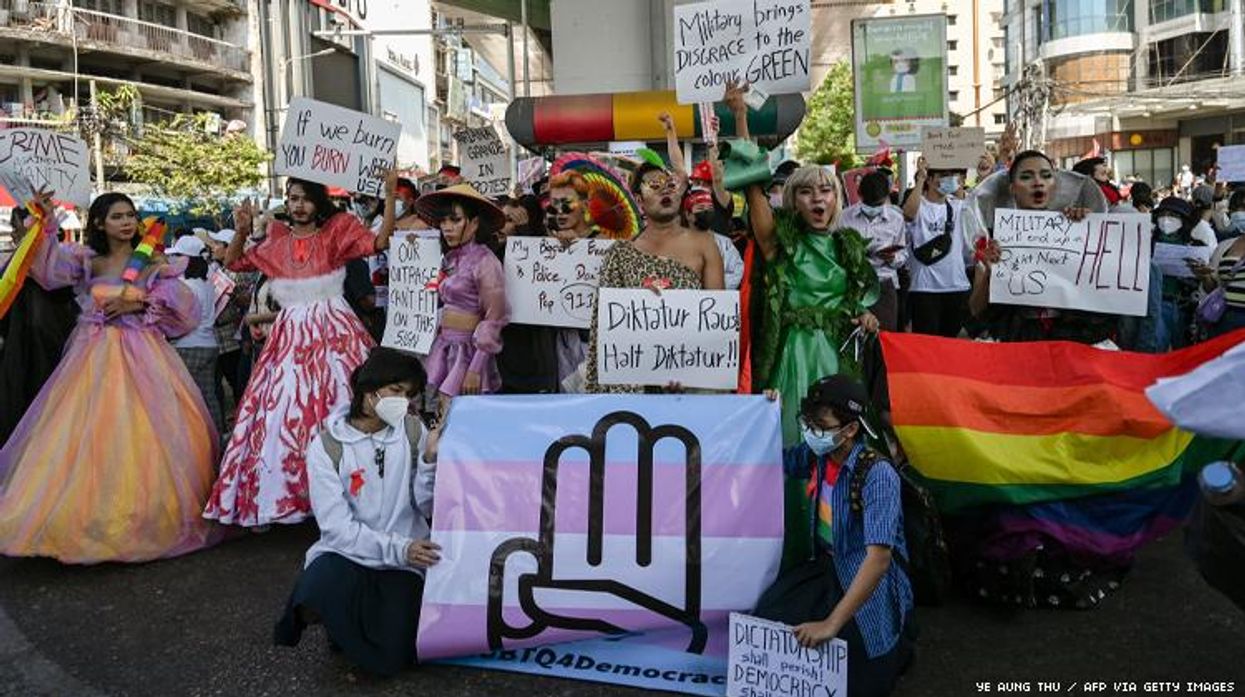News
LGBTQ+ People Join Protests Against Military Coup in Myanmar

Drag queens have been cheered for joining the marches, which some queer locals believe could lead to more acceptance.
February 11 2021 2:58 PM EST
By continuing to use our site, you agree to our Privacy Policy and Terms of Use.

Drag queens have been cheered for joining the marches, which some queer locals believe could lead to more acceptance.
LGBTQ+ people living in Myanmar have long felt discriminated against but that is suddenly changing thanks to an odd insitgator for queer rights: the military coup which last week overthrew the democratically elected government.
Like many former British Empire colonies, Myanmar still has statutes on its books criminalizing sodomy and dishing out punishments of up to 10 years in prision. The country held it's first Pride in 2018, and as a 39-year-old teacher, Aung Zuy (not his real name), told Nomadic Boys earlier this year, "I'm sorry for the anonymity but because of the homophobic and closed society I live in, I have to be careful to prevent this from affecting my career. Burmese traditions and values have always been very conservative. Burmese culture in general is very sexually oppressive, so people have very limited views on what homosexuality is."
Yet The Guardian reports, LGBTQ+ people are joining the throngs of protesters of all ages and backgrounds taking to the streets — and they're being applauded for doing so. During recent marches in Yangon, Myanmar’s biggest city, drag queens were reportedly met with applause.
Some see these protests as a path to greater LGBTQ+ rights. Min Khant, 21, a Yangon drag queen whose stage name is Walkie Talkie told The Guardian, “People on the marches tell us we should have our rights. They are proud of us. LGBT are protesting in their heels and waving rainbow flags across Myanmar.”
Khant, acknowledged the difficulty in fighting the country's military dictatorship, saying, “We all know what we are facing.” But, he added, queer involvement in the protests, “will make us more accepted.”